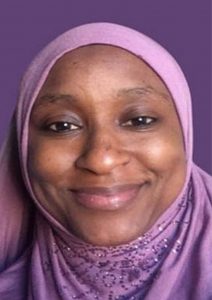Artificial Intelligence (AI) is no longer just a buzzword. It is embedded in everyday work, from drafting emails to automating entire workflows. For Memeburn’s…
Tech boom empowers women in northern Nigeria

“Technology has helped women [in northern Nigeria] affirm their freedom of expression and right to the workforce, which they frequently find difficult to accomplish. This is a really great achievement that shows how it can be utilised to empower those with disadvantaged identities.”

This is the view of Dr Marliyyah Mahmood, women in tech and project manager for Nigeria’s Start-up Arewa. She says women in the West-African nation now have greater access to a wide range of opportunities online as a result of technology advancements.
Women in the northern part of the country, especially, are being enable by technology, believes Mahmood. She emphasises some of the fundamental advantages of social media technologies, such as giving women access to a virtual environment where they may express themselves.
“It is impossible to overstate the importance of women in the growth of any nation, state, or community,” she says.
“This is to reiterate the critical role that women’s education plays in long-term national development, which begins at home. Women are frequently observed to be the children’s first teachers at home.
“A mother’s influence on upbringing in any developing country, and the empowerment of women, has a significant impact on key developmental outcomes like health, education, reproductive patterns, income level, and other factors.”
While a report from PWC in April 2020 states that 41% of micro-businesses in Nigeria are owned by women, an EFInA report stated that 55% of the financially excluded adults in Nigeria are women, and of the 25.1 million financially excluded in the north, 13.1 million are women.
Business transactions are largely cash within informal channels, as business funds are kept at home because financial institutions are concentrated in the state capital, while poor record-keeping from transacting through informal channels in turn hampers eligibility for credit.
The previous census, which was performed in 2006, indicated that women made up around 49.7% of the population of Nigeria. Despite this, Nigerian women have not been able to change the long-standing status that society accords to women.
According to Mahmood there are a number of reasons why women in northern Nigerian society are treated unequally, the majority of which can be linked to the patriarchal system in place and the general lack of gender awareness among the rural population, including women who have been socialised to accept their subordinate position.
However, with better access to information online, women have developed a greater sense of awareness. Online educational content, blogs videos and social media tools have given women access to a virtual world that provides them with opportunities for self-expression, says Mahmood.
“Digital platforms are aiming to be more inclusive than ever before in light of the changing political conscience. It is now essential, not simply an option, to guarantee women’s safety, inclusivity, and a voice at all intersections.
“Through online workspaces, more women have recently been able to achieve financial independence. There are now more jobs available for women thanks to specific job postings on numerous online portals. Housewives or moms who have taken extended absences from the workforce now have access to special possibilities to re-enter the workforce. Many websites provide part-time and full-time occupations that people can undertake from home.”
In northern Nigeria, Startup AREWA and Financial Service Innovation (FSI) organised a virtual hackathon on financial inclusion amongst women entrepreneurs within the northern region by offering simple and easy-to-use fintech solutions to increase more of their participation in setting up businesses.
The innovative solutions developed from this hackathon were able to tackle the challenges faced by unbanked and underbanked women entrepreneurs.
Marliyyah says though women now have access to a wide range of created opportunities online as a result of technology advancements, it must not be overlooked that having internet access is necessary in order to take use of these virtual prospects.
“How many women and members of underrepresented groups actually have access to such technology is still an open subject. To ensure that intersectional gaps are filled and that technology and the internet are more widely available, intervention is necessary in this context,” she says.
READ NEXT: Periculum launches in Nigeria to build credit assessment infrastructure

